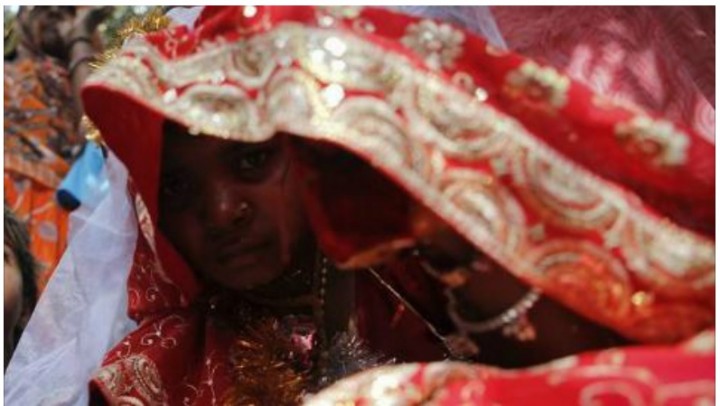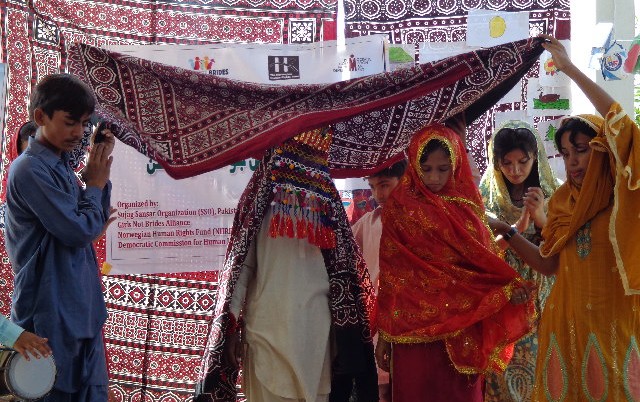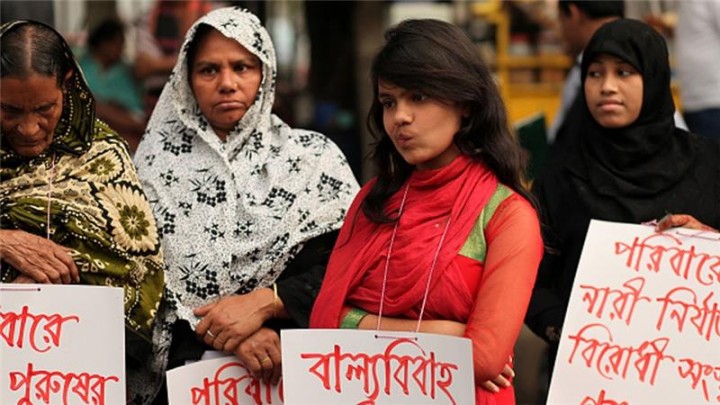Child marriage occurs across the world, in every continent, in many different cultures, and in communities of all religions. Bangladesh has the fourth worst rate of child marriage in the world – 65/66 percent of all girls are married by age 18.
If the numbers do not speak for themselves, the voices of the girls interviewed in the recent Human Rights Watch report on child marriage in Bangladesh most certainly do. This report shows that too many girls in Bangladesh are driven into child marriage by a perfect storm of poverty, gender discrimination, natural disasters (which exacerbate poverty), difficulty accessing education and social pressure, and the consequences are devastating.
Girls who marry early are unlikely to stay in school and earn a decent living later in life, they face serious health issues due to early pregnancy and are more likely to suffer from domestic violence.
Changing a social norm like child marriage might seem daunting. But the experience in Bangladesh and elsewhere shows that it can be done, if everyone plays their part – the government at all levels, civil society organizations, community and religious leaders, families and the girls themselves – and if they are properly supported by development partners and UN agencies.
Together, we need to empower girls to take control of their own decisions, help communities understand why child marriage is harmful (and illegal), provide education, health and other services to girls at risk of child marriage, married girls and their families, and develop and implement appropriate laws and policies.
In 2014, the government of Bangladesh announced its commitment to ending child marriage: at the London Girl Summit, Prime Minister Sheikh Hasina pledged to end child marriage under the age of 15 by 2021 and to end all child marriage under age 18 by 2041. If Bangladesh lives up to this commitment, it will be able to show the world how ending child marriage can lead to a more just, healthy and prosperous life for all citizens. The benefits will be broader; investing in girls leads to larger positive impacts on families, communities and society as a whole.
It would be smart policy if the government of Bangladesh lives up to its ambitious commitments, and partners with civil society organizations who work closely with the communities where child marriage is common.
The marrying off of young girls is a culturally sensitive issue, and one that draws a range of reactions from different countries and different communities. Critics argue it is fraught with danger, damage and discrimination – a violation of human rights.
“In Pakistan girls are not welcomed happily in their houses, a birth of a girl child is not of a happy occasion. She is an economic and financial burden, and as soon as possible parents want to get rid of her,” tells Sadaf Raza, from the Ideas for Life Trust.
The UN is worried, predicting that 140 million girls will become child brides between 2011 and 2020. That is more than 14 million girls a year it says will marry too young – some 39,000 each and every day. Furthermore, it is warning that of these, 50 million will be under the age of 15.
“This is a global crisis that we are facing, everyday 39,000 girls are being forced to marry and we know that it has a devastating impact not only in their lives but the lives of their communities, most often it means they are forced to leave their education and the opportunity to fulfill their potential and it also puts them at a great vulnerability to violence, abuse contracting sexually transmitted infections including HIV.”
The UN has identified 42 countries where one in three children under the age of 18 are married. Statistics gathered over the last decade found that in both proportions and numbers, most child marriages take place in rural sub-Saharan Africa and South Asia.
Niger has the highest rate with 75 percent of girls marrying before the age of 18, and Bangladesh is ranked the highest for Asia – at 65/66 percent.
Morocco is one of the countries where child marriage is on the increase. The latest figures show the number of young girls getting married rose to 35,000 in 2010, up from 30,000 just two years before.
Rights groups are calling for a total ban on the practice, and the government looks set to bow to pressure to change a law allowing those accused of raping minors to escape punishment by marrying their young victims.
Research suggests girls who get married when they are young are at greater risk from violence and health problems. The International Centre for Research on Women says girls younger than 15 are five times more likely to die in child birth than women in their twenties, and pregnancy is now the leading cause of death for women aged 15-19 in the developing world.
It adds that girls who marry before 18 are more likely to experience domestic violence and sexual abuse, and child brides affected in this way show feelings of helplessness, hopelessness and severe depression.
Sources: Ending child marriage in Bangladesh and beyond
Child brides: How old is too young to marry?


